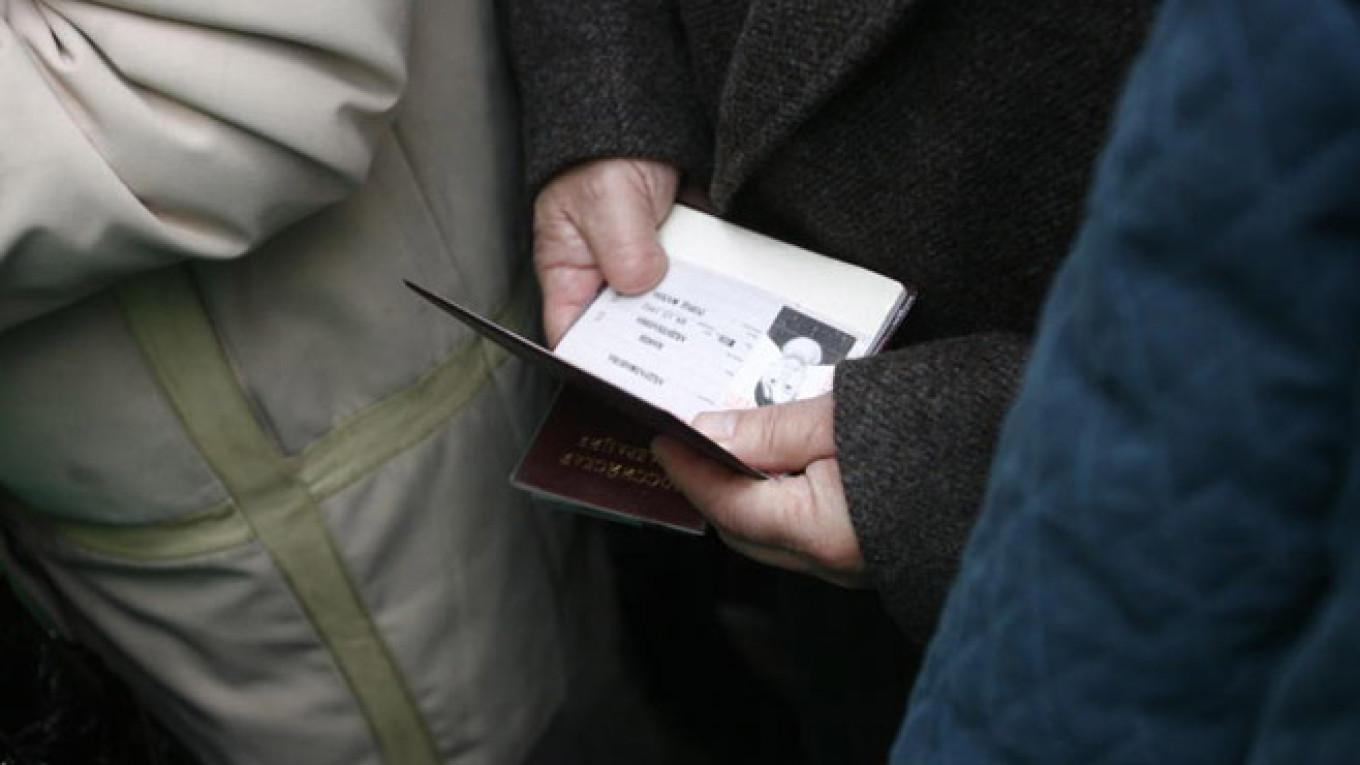Five rights advocates were reportedly prevented from leaving Russia to attend a UN-organized conference taking place in New York this week.
The Russians were due to take part in the World Conference on Indigenous Peoples on Monday and Tuesday, but were unable to fly out because of incidents ranging from damaged passports to punctured tires and multiple police checks.
Rodion Sulyandziga was scheduled to co-chair a roundtable on lands, territories and resources, but his passport was taken away by border police at Moscow's Sheremetyevo Airport. Fifteen minutes later, when he got it back, he found that one of its pages was missing, rendering the passport void, the activist wrote on his Facebook page.
Anna Naikanchina, who was due to speak at the conference on the rights of indigenous peoples at national and local levels, was also stopped at Sheremetyevo. While she was going through passport control, several pages of her passport were cut and the document declared void, according to Sulyandziga.
"What is this? What are the authorities afraid of? This is a policy of intimidation and repression carried out against a backdrop of mass psychosis," Sulyandziga wrote.
According to Sulyandziga, his planned trip to the UN had no political aspects to it.
"I did not plan to criticize Russia, we would only have discussed the situation concerning indigenous peoples around the world, in particular from the point of view of industrial development," he told The Moscow Times on Tuesday.
The Russian government classifies 40 different Russian peoples of the European North, Siberia and the Far East as indigenous and small-numbered. None of them has a population exceeding 50,000. ?
Valentina Sovkina, chairman of the Sami Parliament of the Kola Peninsula, a congress of the indigenous Sami people in the Murmansk region, was also unable to leave Russia. On the morning of her departure, she discovered that her car's tires were punctured. She got in a taxi to go to the airport, only for it to be stopped by police three times, as a result of which she missed her plane, she wrote on her Facebook page. She got a later flight to New York, she said Tuesday. ?
Nadir Bekir, director of the International Fund for Research and Support of the Indigenous Peoples of Crimea, was attacked by unknown people while he was driving to Kiev last week. The attackers blocked his car with their vehicle, seized his passport and fled, MediaZone news site reported Monday.
According to Pavel Chikov, chairman of the Agora human rights organization, harassing and delaying people by stopping their cars is a known practice, but damaging their passports at the border is something new.
"The passport story reveals new depths of what the government can do," he told The Moscow Times in a phone interview.
"The problem is that the scandal is now taking international proportions. The government was unable to do it quietly," he said.
Another unidentified activist invited to the conference reportedly returned from a local store to find the door to her apartment had been glued shut while she was out. By the time the door had been unsealed, she was too late to catch her flight, Svetlana Shmeleva of the Moscow School of Civic Education wrote on Facebook, citing former students of the school.
The activists said they will launch legal action to defend their rights. The UN was informed about the reason for their failure to attend the conference.
Contact the author at i.nechepurenko@imedia.ru
A Message from The Moscow Times:
Dear readers,
We are facing unprecedented challenges. Russia's Prosecutor General's Office has designated The Moscow Times as an "undesirable" organization, criminalizing our work and putting our staff at risk of prosecution. This follows our earlier unjust labeling as a "foreign agent."
These actions are direct attempts to silence independent journalism in Russia. The authorities claim our work "discredits the decisions of the Russian leadership." We see things differently: we strive to provide accurate, unbiased reporting on Russia.
We, the journalists of The Moscow Times, refuse to be silenced. But to continue our work, we need your help.
Your support, no matter how small, makes a world of difference. If you can, please support us monthly starting from just $2. It's quick to set up, and every contribution makes a significant impact.
By supporting The Moscow Times, you're defending open, independent journalism in the face of repression. Thank you for standing with us.
Remind me later.


